#reduce acid reflux immediately
Explore tagged Tumblr posts
Text
What You Should Know Before Giving Pepcid to Your Dog
Pepcid (Famotidine) is a widely used medication for managing digestive issues in dogs, such as acid reflux, gastritis, and stomach ulcers. While it can be highly effective, it's important to understand its use, potential benefits, and risks before administering it to your pet. Here’s what you need to know before giving Pepcid to your dog.

Understanding Pepcid and Its Uses
Pepcid is an H2 receptor antagonist that works by blocking histamine receptors in the stomach. This action reduces the production of stomach acid, which can alleviate symptoms associated with excessive acid. Common conditions treated with Pepcid in dogs include:
Acid Reflux: A condition where stomach acid flows back into the esophagus, causing discomfort and nausea.
Gastritis: Inflammation of the stomach lining, which can lead to vomiting and stomach pain.
Stomach Ulcers: Sores on the stomach lining caused by excessive acid, which can cause pain and nausea.
By lowering stomach acid, Pepcid helps to soothe the stomach lining, reduce inflammation, and promote healing.
Before You Give Pepcid to Your Dog
1. Consult Your Veterinarian
Always consult with your veterinarian before starting Pepcid. Your vet will determine if Pepcid is appropriate for your dog’s condition and prescribe the correct dosage. They will consider your dog’s medical history, weight, and overall health to ensure the medication is safe and effective.
2. Understand the Correct Dosage
Pepcid dosage for dogs typically ranges from 0.25 to 0.5 mg per pound of body weight, given once or twice daily. The specific dosage and frequency will depend on your dog's size and the severity of their condition. Follow your vet’s instructions carefully to avoid potential side effects or ineffectiveness.
3. Know the Potential Side Effects
While Pepcid is generally safe for dogs, there can be side effects. Common side effects include:
Digestive Upset: Diarrhea or constipation may occur in some dogs.
Loss of Appetite: Some dogs may experience a decreased appetite while on Pepcid.
Serious side effects are rare but can include:
Allergic Reactions: Symptoms like swelling, hives, or difficulty breathing require immediate veterinary attention.
Kidney or Liver Issues: Dogs with pre-existing conditions affecting the kidneys or liver may require a different dosage or alternative treatment.
4. Be Aware of Drug Interactions
Pepcid can interact with other medications. Inform your veterinarian of any other drugs or supplements your dog is taking to prevent adverse interactions. This includes over-the-counter medications, prescription drugs, and herbal supplements.
5. Use the Correct Form of Pepcid
Pepcid is available in various forms, such as tablets, chewables, and liquid. Choose the form that is easiest for your dog to take. If you have human Pepcid on hand, ensure it is suitable for pets, or use the pet-specific formulation recommended by your veterinarian.
6. Administer Pepcid Correctly
For best results, Pepcid should be given on an empty stomach, at least 30 minutes before your dog’s meals. This allows the medication to work more effectively by reducing stomach acid before food enters the digestive system.
Monitoring Your Dog While on Pepcid
1. Observe for Improvement
After starting Pepcid, monitor your dog for improvements in their symptoms. You should see a reduction in vomiting, nausea, and discomfort. If symptoms persist or worsen, contact your veterinarian.
2. Watch for Side Effects
Keep an eye out for any adverse reactions or side effects. Mild digestive issues are common, but if you notice more serious symptoms such as severe lethargy, significant changes in appetite, or signs of an allergic reaction, seek veterinary advice promptly.
3. Follow Up with Your Veterinarian
Regular follow-up appointments with your vet are important to assess your dog’s response to the medication and make any necessary adjustments to the treatment plan. This helps ensure that Pepcid is effectively managing your dog’s condition and that there are no complications.
Alternatives to Pepcid
If Pepcid is not suitable for your dog or if it doesn’t effectively address their symptoms, there are alternative treatments available:
Omeprazole: Another medication that reduces stomach acid, often used when Pepcid is not sufficient.
Sucralfate: Coats the stomach lining and protects it from acid, promoting healing of ulcers and gastritis.
Metoclopramide: Helps control vomiting and improve stomach motility.
Your veterinarian can help determine if one of these alternatives might be a better option for your dog.
Conclusion
Pepcid can be an effective solution for managing digestive discomfort in dogs when used correctly. Before giving Pepcid, consult with your veterinarian to ensure it’s the right choice for your pet’s condition. Follow the prescribed dosage and administration instructions, and monitor your dog for any side effects or changes in their condition. With proper use and veterinary guidance, Pepcid can provide relief from digestive issues and improve your dog’s quality of life. click here to read more
https://puppadogs.com/pepcid-for-dogs-benefits-dosage-side-effects
2 notes
·
View notes
Text
Mint Oil for Oral Health | Benefits | Side Effects | Interactions | Who Should Avoid | Takeaway
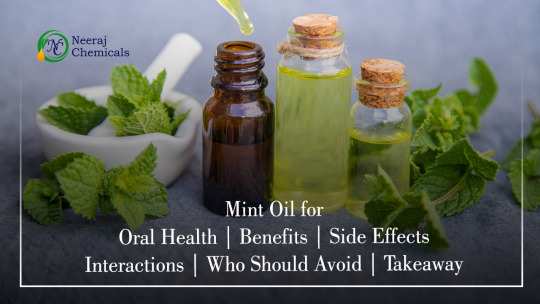
Mint oil, derived from the leaves of the mint plant, has been used for centuries for its refreshing flavour and medicinal properties. Today, it is widely recognized for its benefits in oral health, making it a popular ingredient in toothpaste, mouthwash, and other dental care products. However, like any natural remedy, mint oil has its benefits, side effects, and interactions that should be considered. This blog will explore the comprehensive aspects of using mint oil for oral health, focusing on its benefits, potential side effects, interactions with other substances, who should avoid it, and the key takeaways for its use.
Benefits of Mint Oil for Oral Health
Mint oil offers a range of benefits for oral health, making it a valuable addition to daily dental care routines. Here are some of the key advantages:
1. Freshens Breath
One of the most well-known benefits of mint oil is its ability to freshen breath. The strong, refreshing scent of mint oil can help mask bad breath and provide a clean, pleasant taste in the mouth. This is why mint oil is a common ingredient in toothpaste and mouthwash.
2. Antibacterial Properties
Mint oil has natural antibacterial properties, which can help reduce harmful bacteria in the mouth. These bacteria are often responsible for causing bad breath, plaque build-up, and gum disease. Regular use of products containing mint oil can help maintain a healthier oral environment by reducing the presence of these bacteria.
3. Reduces Inflammation
Mint oil’s anti-inflammatory properties can be beneficial for people suffering from gum inflammation, known as gingivitis. Applying diluted mint oil to the gums can help reduce swelling and discomfort, promoting overall gum health.
4. Supports Healthy Gums
In addition to reducing inflammation, mint oil can help strengthen the gums. Its antimicrobial properties prevent infections that could lead to gum disease, while its soothing effects help maintain gum health over time.
5. Soothes Toothaches
Mint oil has been traditionally used as a natural remedy for toothaches. The cooling effect of menthol, a major component of mint oil, can provide temporary relief from tooth pain by numbing the affected area.
6. Promotes Oral Hygiene
Incorporating mint oil into your daily oral hygiene routine can help prevent cavities and keep your teeth and gums healthy. Its antibacterial and anti-inflammatory properties work together to create a cleaner, healthier mouth.
Side Effects of Mint Oil
While mint oil offers numerous benefits for oral health, it is essential to be aware of potential side effects, especially when used improperly or in excessive amounts.
1. Irritation of Mouth and Gums
Mint oil is potent, and using it in undiluted form can cause irritation or a burning sensation in the mouth and gums. It’s important to dilute mint oil with a carrier oil (such as coconut or olive oil) before applying it to sensitive areas in the mouth.
2. Allergic Reactions
Some individuals may be allergic to mint oil. Symptoms of an allergic reaction can include itching, swelling, redness, or hives in the mouth or on the skin. If you experience any of these symptoms, discontinue use immediately and consult a healthcare professional.
3. Heartburn and Acid Reflux
Mint oil can relax the lower esophageal sphincter, which may lead to heartburn or acid reflux in some individuals. If you have a history of these conditions, it’s advisable to use mint oil with caution or avoid it altogether.
4. Dry Mouth
In some cases, mint oil can cause dry mouth, especially if used in large amounts. This can lead to discomfort and increase the risk of cavities and gum disease, as saliva is essential for maintaining oral health.
Interactions with Other Substances
Mint oil can interact with certain medications and substances, which may either diminish its effectiveness or cause unwanted side effects. Here are some interactions to be aware of:
1. Medications for Acid Reflux
As mentioned earlier, mint oil can relax the lower esophageal sphincter, potentially exacerbating symptoms of acid reflux. If you are taking medications for this condition, using mint oil might reduce their effectiveness or worsen your symptoms.
2. Homeopathic Remedies
Mint oil may interfere with the absorption or effectiveness of certain homeopathic remedies, particularly those that are menthol-sensitive. If you are using homeopathic treatments, consult your healthcare provider before incorporating mint oil into your regimen.
3. Iron Supplements
Mint oil can inhibit the absorption of iron in the digestive system. If you are taking iron supplements, it’s advisable to avoid using mint oil orally or ensure there is a sufficient time gap between using the oil and taking the supplement.
4. Herbal Supplements
Mint oil may interact with other herbal supplements, particularly those that affect digestion or circulation. If you are using herbal supplements, consult with a healthcare professional to ensure there are no adverse interactions.
Who Should Avoid Mint Oil?
While mint oil can be beneficial for many, certain individuals should avoid its use or use it with caution.
1. Pregnant or Breastfeeding Women
Pregnant or breastfeeding women should use mint oil cautiously, as its effects during pregnancy and lactation are not well-studied. It’s best to consult a healthcare provider before using mint oil during these periods.
2. Infants and Young Children
Mint oil should not be used on infants or young children, as it can cause severe respiratory issues, including breathing difficulties. The strong scent and potency of mint oil can be overwhelming for a child’s delicate respiratory system.
3. Individuals with Gastroesophageal Reflux Disease (GERD)
People with GERD or chronic acid reflux should avoid mint oil, as it can relax the lower esophageal sphincter and worsen symptoms. If you experience frequent heartburn, it’s best to avoid using mint oil internally.
4. Those with Mint Allergies
Individuals who are allergic to mint or menthol should avoid mint oil entirely to prevent allergic reactions. Even topical use of diluted mint oil can trigger symptoms in those with sensitivities.
Takeaway
Mint oil is a powerful natural remedy that offers numerous benefits for oral health, from freshening breath to supporting healthy gums. However, like any essential oil, it’s important to use it with care and be aware of potential side effects and interactions. Whether you’re adding mint oil to your daily oral care routine or using it as a targeted treatment, ensuring you source high-quality oil is key.
For those seeking trusted mint oil wholesalers in India, Neeraj Chemical is a name that stands out. With a commitment to quality and ethical sourcing, Neeraj Chemical provides pure and effective mint oil that can enhance your oral health regimen. By incorporating mint oil thoughtfully and with awareness of its potential effects, you can enjoy its many benefits while maintaining a healthy and vibrant smile.
2 notes
·
View notes
Text
V-Day - The End of the Beginning
Yesterday I woke up from another night of little sleep and much acid. I took Pepto Bismol just about as fast as they'd let me - hourly - throughout the night, and it only barely took the edge off enough to "sleep" sitting up with my head at a bizarre angle. Eventually the nurse got the go-ahead to give me Prevacid, which I'd never taken before but I was willing to try anything.
To its credit, it did reduce the acid in my stomach. But it did so by flushing it out the other way, so I woke up with a tummy ache. Great.
Listen, you really don't want to experience a tummy ache while your tummy is literally riddled with slices. There are glued-together incisions all over my abdomen, some of which certainly go straight through the abs. That explains why it hurts so bad to cough, and to vomit for that matter. Or laugh. Wasn't doing much of that last one, though.
Anyway, I spent the morning in and out of the bathroom, but it wasn't loose like before, so I was confident I could go home. The doctors came in, removed the catheter (OUCH! FUCK!) and offered to remove the packing and teach me dilation right away or some back later. I said "come back later" - my urethra was on fucking fire!
I took that time to pack and try to remember how to pee. I didn't have to pee yet, so it was purely academic, but I did go for a bit of a walk by myself - not something I was inclined to do while holding a bag of piss. But moving around was good for me, and I finally peed in the toilet. It was a damn mess. I was warned, I suppose, I just hope it stops doing that when the swelling goes down.
At this point I knew my indigestion would only get worse if I didn't eat something, but I also knew I desperately needed safe foods. I ate some of what the hospital gave me that day, but it did nothing for me. I needed my black bean crunchwrap. I would not be able to properly rest without it. Granola made a poor substitute.
Honestly, tangent here, but what the hell did that hospital kitchen have against beans? They had green beans, but other than that? Forget it. They had goddamn cheesesteaks but I couldn't get a comforting and nutritious burrito even if I asked. Disgraceful.
Another disgrace was that hospital bed. It was tilted to the right. If you have GI issues, you might immediately recognize the problem here, but I'll explain anyway: Sleeping on your left side reduces acid reflux symptoms, but I was unable to do so since I had a catheter. I had to sleep on my back. But you see, while I slept on my back I was sleeping in the worst orientation for my esophagus. I never had a chance.
The surgery team came back, un-slurped my packing gauze, and taught me how to dilate a little bit too aggressively. It as fucking painful. But at least that meant I'd done everything I had to do to go home. It was just a waiting game at this point. I used some of my remaining time to try dilating again in private, and it was still awful but at least I managed to hold the smallest one about halfway in for ten minutes. A decent slow start.
This is running long, so I'll gloss over the rest. I got carted out in a wheelchair, enjoyed the cool breeze, and took a bite of that black bean crunchwrap. I knew then that I'd be alright.
I got home, showered, and properly slept for the first time in days. I'm alive again. I'm back.
#nsc original#trans surgery#trans woman#transgender#trans people#transfem#trans#transition#vaginoplasty#V-Day
5 notes
·
View notes
Note
Hello I hear that you are a dentistry student.
Is there anything you know of slash can think of that could be done to make the bi-annual Dentist Experience less intense? I have autism and sensory issues and the whole experience makes me so nervous I get close to vomiting because of how uncomfortable it is.
Hello! Thank you so much for the ask.
Indeed, I am a dentistry student, finishing studies very soon.
Here's some things that might help you or someone else out, hopefully.
Hear me out. If possible for you, make it so there's the least amount of effort that needs to be put into your appointment by the dentist or hygienist. What I mean by this is: take care of your teeth properly. And yes, I know how difficult this can be, especially when you're going through a depressive episode or a particularly rough patch. No judgement here!
What do I mean by taking care of your teeth properly? The usual: brush at least twice a day and floss. But there's more to it.
Use fluoride toothpaste. Whitening toothpaste tends to be more abrasive and I generally don't recommend it for that reason.
Medium or soft-bristled toothbrush. It will be more forgiving if your brushing technique is a bit too harsh.
Start brushing on the lingual side of your teeth first. That way you'll prevent the buildup of calculus where it usually tends to collect. Therefore, you might not even need scaling on your next appointment.
If you don't have the dexterity or patience for dental floss, use flossers.
To help your teeth re-mineralize and perhaps even stop surface-level caries from developing further, use products such as Tooth Mousse that contains "liquid enamel".
Try to actually go to the dentist as often as they suggest you should. The dentist assesses the risk of you having cavities or gum issues and how often you should have check-ups. Dental work usually gets more expensive and invasive the longer you let yourself go without regular visits.
If you consume a lot of soft drinks, have an eating disorder, acid reflux or vomit often, do not brush your teeth immediately after getting your teeth exposed to the acid. This over a period of time will combine erosion and abrasion to the enamel and dentin and can be very damaging. Instead, thoroughly rinse your mouth with water, then fluoride mouthwash, and wait at least 20 minutes before brushing your teeth. I know it feels disgusting but it prevents damage to the teeth that might need fixing in the future.
When it comes to visiting your dentist/hygienist:
Inform them about your sensory issues. If they don't take them seriously or accommodate them, maybe it's better to switch to someone else, if possible. I know advocating for yourself can be difficult but a good medical professional will take it into consideration.
Nausea can possibly be prevented with nitrous oxide or antihistamines. The former is often used for more invasive procedures such as tooth extractions. The right kind of antihistamines can reduce anxiety and nausea. If you want to consider those, talk to your family doctor about them and see if it's a good fit for you.
If you're very nervous, schedule an introductory appointment that will only be specifically for getting used to the dentist or hygienist as a person and the environment of the office. Voice your concerns then. Going to a pediatric dentist specifically might be a good option.
Ask the staff to walk you through every step of the way so you're not surprised by the experience.
If you dislike the sensation of your tongue getting really dry while getting a cavity filling done, ask beforehand if there's a possibility of using a dental dam during the procedure. It might be uncomfortable in other ways but it will keep your tongue moist.
That's all the things I've thought of so far. I might add onto it in the future. Feel free to ask me any questions you might have and I'll try to answer them to the best of my ability. If you have any specific sensory issues and would like to share, I'd love to try and help out!
3 notes
·
View notes
Text
Post Understanding Indigestion: Reasons, Signs, and Treatment Options
The Unsettling Truth regarding Indigestion
Indigestion, additionally recognized as gastroesophageal reflux disease (GERD), is a typical digestive disorder that affects countless people worldwide. This problem takes place when the acid from your tummy recedes right into your esophagus, causing a variety of awkward signs. While occasional acid reflux is regular, persistent acid reflux can cause major wellness difficulties if left untreated.There are several
aspects that can contribute to the advancement of heartburn. One of the main causes is a compromised reduced esophageal sphincter (LES), which is accountable for avoiding stomach acid from receding right into the esophagus. Specific way of living selections, such as consuming big meals, consuming as well swiftly, smoking, and too much alcohol intake, can deteriorate the LES as well as increase the danger of heartburn. Furthermore, obesity, maternity, and also certain medical conditions like hiatal rupture and also gastroparesis can likewise add to the advancement of acid reflux.Recognizing the Effects
and also Seeking Treatment The symptoms of heartburn can
vary from individual to person, yet one of the most usual ones consist of heartburn, regurgitation, breast pain, difficulty swallowing, and also a persistent coughing. If you experience these symptoms regularly or they substantially impact your quality of life, it is essential to look for medical attention for an exact diagnosis and ideal treatment.Treatment options for indigestion typically include a combination of lifestyle modifications, drugs, as well as in many cases, medical treatment. Customizing your diet regimen by preventing trigger foods, such as spicy and also fatty foods, citrus fruits, and caffeine, can assist relieve symptoms. Eating smaller sized, more frequent meals as well as avoiding existing down immediately after consuming can also be useful. Non-prescription antacids as well as acid reducers can give momentary alleviation, while prescription medicines like proton pump inhibitors( PPIs )can help in reducing belly acid manufacturing in extra serious cases.In verdict, recognizing indigestion and its reasons, symptoms, and also therapy choices is vital for any individual that experiences this digestion problem. By making needed way of life adjustments and also seeking appropriate healthcare, people can successfully handle their signs and symptoms as well as prevent long-term complications. Keep in mind, if you believe you have indigestion, speak with a healthcare specialist for an appropriate medical diagnosis as well as tailored treatment strategy.
Read more here Innovation Guidance
1 note
·
View note
Text
Know 5 Unexpected Benefits of Chiropractic Services Brooklyn
When most people think of chiropractic care, they often imagine back cracking or adjustments for back pain relief. But the truth is, visiting a chiropractor offers far more benefits than most expect.
In Brooklyn, where life can be fast-paced and stressful, Chiropractic Services Brooklyn are quietly becoming a go-to wellness solution not just for pain, but for better living overall.
Here Are 5 Unexpected Benefits of Chiropractic Services That Go Beyond Your Spine:

Boosted Immune System Function
You may not immediately connect spinal health with your immune system—but they’re more closely linked than you think. Your nervous system, which includes your spine and brain, controls your body’s immune responses. When there’s spinal misalignment (subluxation), communication between your brain and immune system can be disrupted.
Chiropractic adjustments help restore this connection, allowing your body to respond to illnesses more effectively. Many Brooklyn patients report fewer colds, faster recovery from illnesses, and even improved allergy symptoms after consistent chiropractic visits.
Improved Sleep Quality
Tired of tossing and turning at night? Stress, spinal tension, and poor posture are often culprits behind insomnia or poor sleep. Chiropractic care helps relieve tension in your muscles and nervous system, promoting deeper and more restful sleep.
Whether you're a busy professional in Downtown Brooklyn or a new parent in Park Slope, better sleep can be a game-changer. Regular adjustments may help you fall asleep faster and wake up feeling genuinely refreshed.
Enhanced Athletic Performance

Brooklyn is home to athletes, dancers, runners, and weekend warriors alike. Whether you’re jogging around Prospect Park or training at a CrossFit gym in Williamsburg, chiropractic care can help elevate your game.
Adjustments can increase joint mobility, reduce inflammation, and prevent injuries by improving body mechanics. Many elite athletes—like Tom Brady and Michael Jordan—swear by chiropractic care, and you can tap into the same advantage right here in Brooklyn.
Elevated Mood and Mental Health
This might surprise you: chiropractic care has been shown to positively influence mood and mental health. Why? Because spinal misalignments can disrupt hormone balance and nervous system function, contributing to anxiety, irritability, or even depression.
By aligning the spine and easing tension in the nervous system, chiropractic care can support the release of “feel good” hormones like dopamine and serotonin. Think of it as a natural mood booster—with no prescription needed.
Improved Digestive Health
Believe it or not, digestive issues like bloating, acid reflux, or constipation may be linked to your spinal health. The nerves in your lower spine play a major role in digestion. If they’re being compressed or disrupted, your gut won’t function as smoothly.

Regular chiropractic adjustments can help restore nerve function in the digestive system, allowing your body to process food more efficiently. If you’ve been battling unexplained digestive issues, it might be worth a visit to a local chiropractor in Brooklyn.
Final Thoughts
Chiropractic services in Brooklyn are more than just back pain relief—they’re a gateway to full-body wellness. From better sleep to improved immunity, a skilled chiropractor can help you unlock your body’s natural healing abilities.
If you're ready to explore holistic health that goes beyond the basics, consider scheduling a consultation with Brooklyn Chiropractic Care. You may just discover benefits that surprise you, in the best way.
0 notes
Text
Common Gastro Problems During Monsoon & How to Prevent Them

Introduction
The monsoon season brings relief from the summer heat, but it also increases the risk of several gastrointestinal (gastro) infections. Humidity, contaminated water, and poor hygiene are the primary culprits behind the rise in digestive ailments during this time. Understanding the common gastro problems in monsoon and knowing how to manage them can go a long way in maintaining your gut health.
1. Why Monsoon Affects Digestive Health
During monsoons, our digestive capacity naturally weakens due to high moisture levels and lower atmospheric pressure. Moreover, the chances of food and water contamination increase significantly, leading to a spike in gastro-related illnesses. As a seasoned gastroenterologist in Gurgaon, I see a noticeable surge in patients suffering from stomach issues during this season.
2. Common Gastro Problems in Monsoon
Let’s take a closer look at the most frequent digestive disorders that occur during monsoon:
a. Acidity and Indigestion
Spicy, oily foods or eating out during monsoon can aggravate acid reflux and indigestion. These symptoms include bloating, nausea, and a burning sensation in the chest or stomach.
b. Diarrhoea and Food Poisoning
One of the common gastro problems in monsoon is diarrhoea caused by bacterial contamination of food and water. It often leads to dehydration, fatigue, and abdominal cramps.
c. Gastroenteritis
Viral or bacterial infections cause inflammation of the stomach and intestines, leading to vomiting, diarrhoea, and stomach pain. It spreads easily through unhygienic food and water.
d. Typhoid and Hepatitis A
Ingestion of water contaminated with fecal matter can cause typhoid or hepatitis A - both serious infections that affect the liver and digestive tract.
e. Constipation
Dehydration due to reduced water intake or poor fluid absorption can lead to constipation. People often ignore this, but it is one of the under-recognized common gastro problems in monsoon.
3. Tips to Prevent Monsoon-Related Gastro Issues
Prevention is better than cure, especially during the rainy season. Here are some helpful tips recommended by a gastroenterologist in Gurgaon:
Boil or filter water before drinking.
Avoid eating street food and uncovered food.
Wash fruits and vegetables thoroughly before consumption.
Eat fresh, home-cooked meals and avoid leftovers.
Stay hydrated by drinking plenty of clean fluids like water, herbal teas, and coconut water.
Strengthen your digestion with probiotics like curd or yogurt.
Maintain hygiene: wash hands regularly, especially before eating.
4. When to See a Doctor
If you notice persistent vomiting, loose stools, high fever, or severe abdominal pain, consult a specialist immediately. Timely diagnosis and treatment are critical to avoid complications. If you’re looking for a trusted gastroenterologist in Gurgaon, Dr. Mukesh Nandal offers expert care for all kinds of gastrointestinal disorders, including those common during monsoons.
Conclusion
The monsoon season may bring joy, but it also brings its share of health challenges, especially for the digestive system. Knowing the common gastro problems in monsoon and taking preventive measures can help you stay healthy throughout the season. Don’t ignore your gut - listen to your body, eat clean, and consult a specialist if symptoms persist.
0 notes
Text
How Fitness Affects Gut Health and Digestive Function Over Time

Overview
Understanding the connection between fitness and general well-being, particularly gut health, has drawn more attention in recent years. A key component of preserving health is the digestive system, which breaks down food and absorbs nutrients. Consistent exercise regimens have been shown to have a positive impact on gut microbiota, digestive efficiency, and long-term gastrointestinal health. This article examines the long-term effects of regular exercise on gut health and digestive function, providing evidence for the importance of fitness in leading a healthy lifestyle.
The Link Between Gut and Fitness
The gut microbiome is the aggregate term for the billions of bacteria, fungi, and viruses that live in the human gut. Immune system performance, mental health, and digestion all depend on a balanced and healthy gut microbiota. The diversity and balance of gut microorganisms can be greatly enhanced by engaging in regular physical activities including strength training, yoga, running, and walking. According to studies, people who regularly work out have gut flora that is healthier than that of sedentary people.
Important Benefits of Exercise for Gut Health
1. Increased Gut Motility
Improved gut motility is among the most direct advantages of fitness for digestive function. Better peristalsis—the wave-like contractions of the gastrointestinal tract muscles that carry food through the digestive system—is encouraged by physical activity. This lowers the chance of bloating and constipation.
2. Inflammation Reduction
Many digestive illnesses, such as inflammatory bowel disease (IBD) and irritable bowel syndrome (IBS), have chronic inflammation as a primary cause. By reducing the amounts of pro-inflammatory cytokines, regular exercise helps to minimize systemic inflammation. As a natural anti-inflammatory, exercise promotes easier digestion and reduced gastrointestinal distress.
3. Stress Reduction and Hormonal Balance
The body's main stress hormone, cortisol, can impair gut barrier function and digestion. Cortisol levels can be regulated by participating in physical activities like cardiovascular workouts or mindful exercises like yoga and pilates. A better gut environment prevents problems including acid reflux, ulcers, and symptoms of irritable bowel syndrome.
4. Increased Diversity of Microbes
Physically active people have a more varied gut flora, according to studies. Stronger immunity, better digestion, and enhanced mental health are all linked to this diversity. Exercise raises the amounts of good bacteria like Faecalibacterium and Akkermansia, which are important for controlling inflammation and absorbing nutrients.
5. Digestive Efficiency and Weight Management
Fitness-based weight maintenance helps avoid metabolic problems including fatty liver disease and insulin resistance, which can both affect digestion. A balanced body weight also lowers the incidence of acid reflux and other digestive problems and improves abdominal pressure.
Long-Term Advantages of Exercise for Gut Health
Consistent fitness has cumulative effects that become more noticeable over time. Individuals who lead active lives are less prone to experience irregular bowel movements, chronic constipation, or gastrointestinal diseases. Furthermore, immunological response, mood management, and energy levels can all be improved by fitness-induced improvements in gut health.
In conclusion
There is an intricate connection between intestinal health and exercise. Incorporating regular physical activity into daily routines can help people reduce inflammation, increase good gut bacteria, and enhance digestive function. These advantages support long-term health and illness prevention in addition to improving immediate comfort. Adopting a comprehensive strategy for fitness that include activity, mindfulness, and a healthy diet can lead to a more vibrant life and a healthier gut.
0 notes
Text
Is a tiny stent the key to relieving major digestive disorders?

In the complex world of digestive health, a small yet powerful tool is transforming patient outcomes — the gastrointestinal stent. Often used to open blocked passages in the stomach, intestines, or esophagus, these stents are offering new hope to patients battling serious conditions like cancer, Crohn’s disease, and strictures caused by chronic inflammation. But what makes them so effective, and why is the Gastrointestinal Stent Market seeing such rapid global expansion?
Let’s uncover how this minimally invasive solution is revolutionizing treatment in gastroenterology.
Why are gastrointestinal stents becoming the go-to solution for blockages?
Gastrointestinal stents are tiny mesh tubes inserted into narrowed or obstructed areas of the GI tract to restore normal passage of food or fluids. They're primarily used in patients with gastrointestinal cancers or non-malignant strictures, helping to relieve symptoms like nausea, pain, and vomiting.
Unlike surgical interventions, stents offer a non-invasive, quicker recovery option. Patients typically experience immediate relief, making them a preferred choice for palliative care and for those unfit for major surgery. This shift toward minimally invasive treatment is one of the biggest drivers of the expanding Gastrointestinal Stent Market.
What advancements are driving innovation in stent design?
The technology behind gastrointestinal stents has come a long way. Today’s stents are made from advanced materials like nitinol and covered with biocompatible coatings to prevent tumor in-growth and reduce migration. They come in customizable sizes and can be deployed using sophisticated endoscopic techniques, further reducing risk and improving patient comfort.
New biodegradable stents are also gaining attention. These eliminate the need for removal procedures, dissolving naturally in the body after completing their function. This kind of patient-friendly innovation is setting a new standard in GI care and further fueling market demand.
How is rising disease prevalence influencing demand?
Chronic digestive conditions and gastrointestinal cancers are increasing globally. Esophageal, colorectal, and gastric cancers rank among the most diagnosed cancers in the world. These conditions often lead to obstruction of the GI tract, where stenting becomes not just useful — but critical.
Aging populations, changing dietary habits, and higher obesity rates are also contributing to digestive issues that require interventional care. As a result, the use of GI stents in both emergency and long-term care settings is accelerating worldwide.
Are stents only used in critical cases, or is their use expanding?
While originally developed for malignant obstructions, stents are now increasingly used for non-malignant conditions as well. For example, patients with chronic Crohn’s disease or those recovering from gastrointestinal surgeries can benefit from temporary stenting to allow healing and avoid repeat surgeries.
The move toward outpatient care and shorter hospital stays also favors stent placement, which can be done in ambulatory settings with minimal complications. This makes them accessible, scalable, and efficient — three key elements in modern healthcare delivery.
What does consumer wellness have to do with GI health trends?
Consumer awareness around digestive health is growing rapidly. This is evident in booming supplement industries like the South Korea Health Supplements Market, where probiotics and gut-focused products are becoming household staples.
In parallel, the China Health Supplements Market shows increased demand for natural solutions to common GI problems like acid reflux, constipation, and bloating. As more people take control of their digestive health, routine screenings and interventions are rising — and so is early detection of conditions where GI stents can play a life-changing role.
Is the market ready for global expansion?
With better screening programs, improved diagnostic tools, and growing health infrastructure in emerging markets, the gastrointestinal stent segment is primed for continued growth. Countries investing in modern endoscopy units and minimally invasive procedures are already seeing the benefits in terms of cost savings and improved patient outcomes.
Moreover, as device manufacturers continue to innovate and regulators approve more stent varieties for a wider range of conditions, access is expanding fast — from top-tier hospitals to community care centers.
Final insight
The Gastrointestinal Stent Market shows that when innovation meets necessity, even the smallest medical devices can deliver life-changing impact. With rising demand, better tech, and growing awareness of digestive health, GI stents are quietly becoming one of the most powerful tools in modern medicine.
0 notes
Text
You Took Shilajit for Energy… But Got Diarrhea Instead?

You expected boosted energy, better focus and improved stamina. But instead, you’re stuck in the bathroom. So what went wrong? Can a natural supplement like shilajit really mess up your stomach? Let’s talk about the surprising side effects of shilajit—especially the one no one talks about: diarrhea.
Introduction: Shilajit Is Powerful—But Not Always Gentle
Shilajit is a sticky mineral-rich substance found in Himalayan rocks. Known for its fulvic acid content and adaptogenic properties, it’s used to boost energy, improve immunity and support overall wellness. But while many enjoy its benefits, others experience unexpected reactions—especially gut-related issues. One such concern? Diarrhea.
Can Shilajit Cause Diarrhea?
Yes, it can—especially if taken in high doses, on an empty stomach or if your body is sensitive to it. Let’s talk about it. Why Does Shilajit Cause Digestive Problems?
Here are some common reasons:
Impurities or Heavy Metal ContaminationUnpurified or low-quality shilajit can contain arsenic, lead or mercury. This heavy metal toxicity often causes shilajit vomiting, nausea and diarrhea.
Overdose SymptomsTaking too much shilajit can lead to shilajit overdose symptoms like stomach pain, diarrhea, dizziness or even fatigue.
Allergic ReactionsSome people experience shilajit allergic reactions, which may include shilajit rash, hives, swelling, sore throat or chest pain. Severe cases can lead to shilajit anaphylaxis—a medical emergency.
Sensitivity to Fulvic AcidShilajit contains high amounts of fulvic acid, which can irritate your stomach lining, especially in sensitive individuals.
Taking Shilajit on an Empty StomachMany users report better tolerance when taken with food. Taking it on an empty stomach may increase shilajit heartburn, acid reflux or lightheadedness.
Other Digestive Side Effects of Shilajit
Shilajit upset stomach
Shilajit stomach pain
Shilajit nausea and vomiting
Shilajit dehydration
Shilajit changes in bowel movements
Best Time to Take Shilajit
To avoid stomach issues and improve effectiveness, here’s the best way to take it:
With food, not on an empty stomach: This reduces the chance of shilajit digestive issues or acid reflux
In the morning or early afternoon: This helps prevent shilajit-induced insomnia or restlessness
With warm milk or water: This improves absorption and reduces chances of shilajit diarrhea
Avoid taking it too close to bedtime or during dehydration.
Shilajit Benefits for Female
Shilajit isn’t just for men. Women can benefit too.
Energy and fatigue support: Reduces tiredness and supports daily stamina
Hormonal balance: May help with mood swings and irregular cycles
Skin health: Rich minerals and fulvic acid support a natural glow
Bone health: Natural minerals support strength and flexibility
Immunity boost: Helps build resistance to infections
Even though benefits are promising, women should always check shilajit pregnancy safety, breastfeeding safety and dosage limits.
Rare but Severe Reactions:
While most side effects are mild, some users report:
Shilajit difficulty breathing
Shilajit difficulty swallowing
Shilajit rapid heart rate
Shilajit fainting or lightheadedness
These may indicate a shilajit allergic reaction or serious adverse reactions. Stop using it immediately and consult a doctor.
Who Should Avoid Shilajit?
Shilajit is not for everyone. You should avoid it if you:
Are allergic to natural resin-based products
Have chronic illnesses like sickle cell anemia, thalassemia or hemochromatosis
Are pregnant or breastfeeding
Are planning surgery
Take blood pressure, diabetes or heart medications
Are a child or elderly
What About Shilajit and Blood Pressure?
Shilajit blood pressure changes can go either way—it may lower or increase pressure depending on your body’s response. symptoms like:
Shilajit low blood pressure (dizziness, fainting)
Shilajit high blood pressure (chest pain, headaches)
Always monitor your BP if you’re on any blood pressure medication.
Avoid shilajit side effects like diarrhea, follow these tips:
Choose certified products with third-party testing
Avoid unprocessed or raw shilajit
Take it with food, not on an empty stomach
Stay hydrated
Start with a safe dosage and observe your body's response
Monitor for negative effects, especially in the first week
Risks of Unpurified Shilajit
Beware of:
Shilajit impurities
Shilajit raw vs purified confusion
Lack of FDA regulation
Heavy metal contamination
Long-term shilajit risks and warnings
Still Want to Use Shilajit?
If you're considering giving it another shot, stick to safe consumption guidelines. Start slow, pick a reliable brand and monitor your body. Not everyone reacts the same, but it’s always wise to listen to what your gut is telling you.
FAQs
What happens if I take shilajit daily?
If your body tolerates it well, daily use can offer energy, improved immunity and stamina. But overuse or poor-quality products may cause shilajit long-term side effects like digestive issues or mineral imbalance.
Is shilajit hard on your kidneys?
It can be, especially in people with pre-existing kidney issues. Shilajit and kidney health don’t always go hand-in-hand, particularly if it contains impurities or is not third-party tested.
Does shilajit have permanent effects?
Generally, no. Most shilajit side effects are reversible if you stop using it. However, long-term misuse or heavy metal toxicity may lead to more serious problems. Always consult a doctor if you're unsure.
Conclusion
If you took shilajit for energy but got diarrhea instead, you're not alone. While shilajit has plenty of benefits, it’s not risk-free. Knowing the side effects of shilajit, understanding your own body, and practicing safe dosage can make all the difference.Don’t suffer in silence. Listen to your body. And if something feels off—stop use and consult a doctor.
#healthcare#health and wellness#ayurvedic#wellness#health & fitness#healthylifestyle#medicine#nutrition#ayurveda#herbalremedies#ayurvedicmedicine#holisticwellness#healthyliving#healthy#healthy food#exercise#workout#mens health#artists on tumblr#tumblr milestone#tumblr girls#tumblog#tumblr stuff
0 notes
Text
How to Manage Heartburn During Pregnancy? 4 Causes Explained
IntroductionHeartburn or indigestion is a common symptom during pregnancy. It is a feeling of burning sensation in the esophagus (tube that carries food). Although this might seem like a mild discomfort for some, the symptoms must be severe to others.Symptoms of heartburn during pregnancyThe common symptoms of heartburn during pregnancy include: Burning sensation in the throat or chestRegurgitation of foodNauseaBloatingSore throatFeeling heavyCauses of heartburn during pregnancyHeartburn in pregnancy is quite common and the usual causes are: Hormonal changes: Hormonal changes are common during pregnancy as there are higher levels of progesterone and estrogen. This can relax the esophageal sphincter, a ring shaped muscle that opens and closes the esophagus (a tube that carries food to the stomach), leading to acidity or heartburn.Slow digestion: These excessive hormones can slow down the digestion process making food stay longer in the stomach. This can also result in heartburn.Growing baby: Since the baby is rapidly growing and developing, the uterus gets bigger and can cause pressure on the stomach leading to acidity.Intake of certain foods: Intake of certain foods such as excessive caffeine, eating a large meal at once, spicy foods, and carbonated drinks can cause acidity.How to prevent heartburn during pregnancy?Although we cannot entirely prevent heartburn during pregnancy, we can take some measures to reduce the severeness of it. Few tips to reduce acid reflux or heartburn during pregnancy are: Eat small meals throughout the day instead of eating one big mealAdjust your posture. Sit straight and avoid slouching and do not lie down immediately after eating. Include foods such as ginger and bananaLimit caffeine intakeAvoid sodas / carbonated beveragesRecognise and avoid foods that triggers acidityKeep your head elevated while sleeping ConclusionHeartburn is a common concern for pregnant mothers and is usually nothing to worry about. But if you are struggling with extreme heartburn accompanied by other symptoms such as vomiting, or abdomen pain, contact your gynecologist immediately. For appointments and consultations with the best gynecologist in Chennai Dr. Deepthi Jammi, Contact Jammi Scans at 7338771733.Chennai women’s clinic is now Jammi Scans.
0 notes
Text
Avoid Drinking Tea on an Empty Stomach—Here’s Why
For millions around the world, the day doesn’t begin until they’ve had their first cup of tea. While tea is loved for its calming aroma and energizing boost, having it on an empty stomach might not be the healthiest way to start your day. Nutritionists and health experts warn that this common morning habit could be silently harming your digestive system and overall well-being. Here’s why you should reconsider drinking tea before having your first meal.
1. Increases Acidity and Upsets the Stomach
Tea, especially black or green tea, contains tannins and caffeine that increase the acid levels in your stomach. When there’s no food in your digestive tract to balance the acidity, it can irritate the stomach lining. Over time, this could lead to acidity, gas, bloating, and even ulcers in sensitive individuals. This is particularly common among people with pre-existing acid reflux or digestive issues.
2. Disrupts the Metabolic Process
Your body goes into a fasting state while you sleep. Breaking that fast with tea—without any solid food—can disrupt your body’s natural metabolic rhythm. Instead of jumpstarting your digestion, the caffeine in tea may lead to an initial energy spike followed by a crash. This can leave you feeling sluggish, anxious, or jittery, especially if you skip breakfast.
3. Can Cause Dehydration
Though tea is a fluid, it contains caffeine, a mild diuretic. Drinking it first thing in the morning without water or food can contribute to dehydration rather than hydration. It’s always recommended to start your morning with a glass of water to activate digestion, rehydrate the body, and then follow it with tea after a light meal.
4. Reduces Iron Absorption
Tea is high in tannins, which can hinder the absorption of non-heme iron iron found in plant-based foods. If consumed regularly on an empty stomach or with meals rich in iron, tea may gradually lead to iron deficiency, especially in women and vegetarians. It’s better to consume tea between meals rather than immediately before or after eating.
5. May Cause Nausea and Light-headedness
Some people experience nausea or dizziness after drinking strong tea without any food. This could be due to low blood sugar levels or the body’s sensitivity to caffeine. Without any food in the stomach, tea stimulates acid secretion, which can lead to discomfort or nausea in some individuals.
6. Aggravates Anxiety and Heart Palpitations
The caffeine content in tea, though lower than in coffee, can still affect individuals who are sensitive to stimulants. On an empty stomach, caffeine is absorbed more quickly, possibly triggering anxiety, rapid heartbeat, or mood fluctuations.
What to Do Instead
If you enjoy tea in the morning, don’t worry—you don’t have to give it up. Just make sure to eat something before sipping it. A banana, a handful of almonds, or a slice of toast can help cushion your stomach and ease digestion. You can also opt for gentler herbal teas like ginger, chamomile, or peppermint, which are less acidic and easier on an empty stomach.
Conclusion
While tea offers several health benefits, timing is key. Drinking it on an empty stomach may trigger more harm than good, especially for your digestive and metabolic health. Start your day with water, have a light meal, and then enjoy your favorite cup. Small changes in your routine can lead to big improvements in your overall well-being.
0 notes
Text
Best Antacid for Pregnancy: Safe Solutions for Expecting Mothers
Pregnancy brings about several changes in the body and a symptom that many women experience is heartburn. It starts to occur in the second or third trimester when the growing uterus pushes against the stomach. It forces the acid to move upwards. Hormonal changes are also responsible as it makes it easier for the acid to escape.
Buy - Gaviscon - 1mg.com
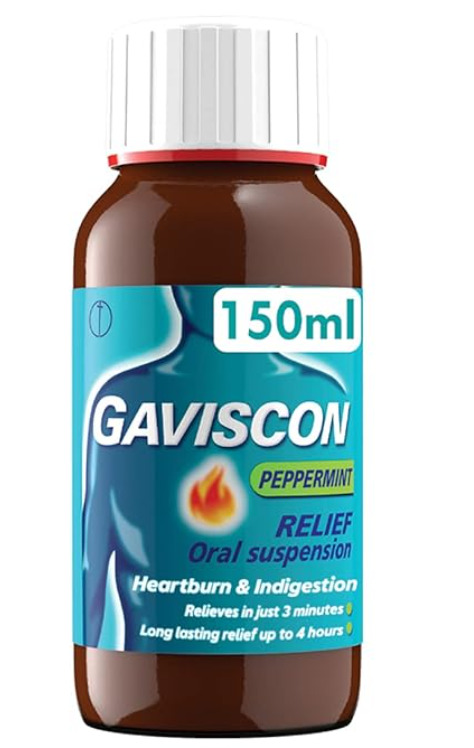
This may lead to a burning feeling in the throat and chest in pregnant women. They experience it frequently after taking meals or even when lying down to sleep. Would-be mothers avoid taking strong medications against medical supervision. That is why it is important to find the best antacid for pregnancy that is safe and offers fast comfort.
The focus should be on solutions that are effective yet gentle, with no harm to the developing baby. Some antacids offer instant relief and help manage symptoms during pregnancy without major side effects. In this guide, we highlight trusted options and explain why Gaviscon remains one of the most recommended choices by healthcare professionals.
What to Look For in an Antacid During Pregnancy
Choosing an antacid during pregnancy means looking for ingredients that are safe. Doctors often prefer antacids that work only in the stomach. These products should be free from harmful additives and should not include aspirin or sodium in high amounts. Here are a few safety pointers:
Choose non-systemic formulas that act locally
Avoid antacids with high sodium if you have swelling or blood pressure issues
Use sugar-free and gluten-free options when possible
Always read the label and dosage instructions
For many mothers, these factors help guide the decision when searching for the best antacid for pregnancy, especially when used over several weeks.
Gaviscon – A Safe and Trusted Option
Gaviscon stands out as a leading choice for pregnancy acidity relief, globally. Its formula includes sodium alginate and it comes from seaweed and reacts with acid to form a protective barrier. This layer creates a barrier that keeps acid from rising up the food pipe. It works within minutes and stays effective for a long time.
Free from sugar and gluten
Safe for use during pregnancy when taken after doctor consultation
Contains no harmful ingredients
Available in mint and peppermint flavours
This makes Gaviscon a safe antacid for pregnant women who want to manage acid reflux symptoms during pregnancy.
Other Tips for Heartburn Relief During Pregnancy
Most women seek effective pregnancy heartburn remedies to support healthy digestion and to lower the chances of acidity. Some of the most helpful practices include-
Eating small meals frequently throughout the day
It is wise not to lie down or sleep immediately after eating
Keep your upper body slightly elevated when sleeping
Drink water sips in between meals
Strictly avoid consuming acidic or spicy foods
These tips support better digestion and reduce triggers that cause acidity. When combined with the right antacid like Gaviscon, they can bring lasting improvement.
Gaviscon’s Unique Features That Support Pregnancy Comfort
Gaviscon works in a different manner than other regular antacids in the market. It forms a protective barrier while neutralising acid and prevents it from moving upward. It provides comfort for several hours and is easy to take after meals or before sleep. Many mothers prefer it for the following reasons:
Quick action within minutes
Long-lasting effect for nighttime relief
Easy availability in liquid form
Does not cause drowsiness or stomach upset
Heartburn can disrupt sleep as well as appetite. This is where Gaviscon helps restore balance and provides gentle support during pregnancy. It meets all the basic requirements for a safe antacid for pregnant women. This OTC antacid continues to remain trusted for acid reflux during pregnancy treatment.
When to Talk to Your Doctor
Symptoms sometimes become more frequent and interfere with eating. They continue even with antacids. It is important to always speak with your doctor. Acid reflux may need further evaluation in rare cases. Most pregnant women can manage symptoms well with simple adjustments and safe products like Gaviscon.
Final Thoughts
Using the best antacid for pregnancy like Gaviscon helps manage symptoms safely and gives you more comfort through each trimester. Gaviscon offers quick relief with a clean ingredient profile. For those looking for reliable support, try incorporating Gaviscon for its proven benefits. Do consult your health care provider in case you have any underlying health conditions.
0 notes
Text
Excessive Spice Consumption and Stomach Health: What You Need to Know
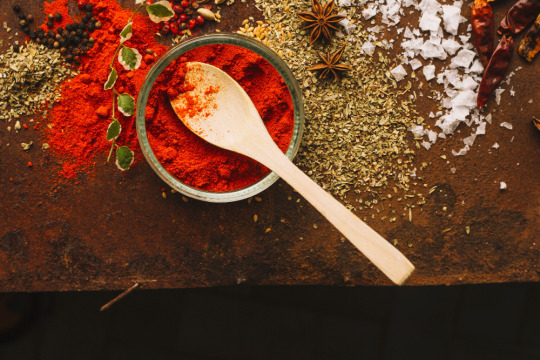
Spices are an essential part of Indian cooking. From turmeric and cumin to red chili powder and garam masala, spices add color, flavor, and aroma to our meals. Many spices even offer health benefits when used in moderation. However, like everything in life, too much of a good thing can turn harmful.
In this blog, we will discuss the impact of excessive spice consumption on stomach health, the symptoms of spice-induced digestive problems, and how to keep your gut happy and healthy.
Why Do We Love Spicy Food?
Spicy food is popular not just for its taste but also for how it makes us feel. Eating spicy food releases endorphins, the body’s natural painkillers, which give a slight “high.” It can also make us feel warm, especially during cold or rainy days. Spices like chili contain capsaicin, which is responsible for the heat. While capsaicin offers some health benefits like boosting metabolism and reducing inflammation, too much of it can irritate the stomach lining.
How Excessive Spices Affect Stomach Health
Let’s look at how too much spice can harm your digestive system:
1. Acidity and Heartburn
One of the most common side effects of spicy food is acidity. Excess spices stimulate acid production in the stomach. When this acid moves upward into the food pipe (esophagus), it causes heartburn and discomfort. Over time, it can lead to conditions like acid reflux or gastroesophageal reflux disease (GERD).
2. Gastric Ulcers
Capsaicin may irritate the stomach lining when consumed in large quantities. This can lead to the development of small sores known as gastric ulcers. Symptoms include sharp abdominal pain, bloating, and nausea. In some severe cases, ulcers can bleed and require medical attention.
3. Digestive Disturbances
Overconsumption of spicy food can disturb the normal digestion process. People may experience gas, bloating, diarrhea, or constipation. This happens because spicy food speeds up the movement of food through the gut, leaving less time for proper absorption.
4. Irritable Bowel Syndrome (IBS) Triggers
For those already suffering from IBS, spices can be a major trigger. Even a small amount of chili can lead to cramping, urgency, and bowel discomfort. Doctors often advise IBS patients to limit or avoid spicy foods altogether.
5. Loss of Appetite or Taste
Too much spice can numb your taste buds temporarily, making food less enjoyable. Frequent irritation of the stomach lining may also lead to nausea, vomiting, and a reduced appetite over time.
Signs That You’re Overdoing the Spice
Here are some signs that indicate your stomach is not handling the spice well:
Burning sensation in the chest or throat
Frequent burping or belching
Stomach pain after meals
Loose motions or irregular bowel movements
Sour taste in mouth, especially when lying down
Loss of appetite
Constant bloating or gas
Tips to Protect Your Stomach While Enjoying Spices
If you love spicy food but want to avoid stomach issues, follow these simple tips:
1. Balance Your Meal
Add yogurt, milk, or ghee to balance spicy dishes. Dairy helps neutralize the heat and soothes the stomach lining.
2. Cook With Digestive-Friendly Spices
Not all spices are harmful. Use cumin, fennel, and turmeric for flavor and digestion support. Avoid overusing red chili powder or black pepper.
3. Hydrate Well
Drink enough water throughout the day. It helps flush out excess acid and keeps the digestive system smooth.
4. Eat Mindfully
Don’t rush meals. Chew slowly and eat in a calm environment. Avoid lying down immediately after eating.
5. Know Your Tolerance
Each body reacts differently to spices. Understand your limit and reduce spice levels if you start noticing discomfort.
Best Tests to Monitor Your Stomach Health
If you frequently face digestive problems, it’s best to get tested. Here are some suitable tests from www.secondmedic.com powered by Thyrocare:
Complete Health Check-Up For an overall view of your body functions including liver and stomach health.
H. Pylori Antibody Test Checks for bacterial infection that causes ulcers.
Liver Function Test (LFT) To monitor the impact of diet and spice on liver-related digestive enzymes.
Stool Routine & Microscopy Helpful in detecting infections or digestive issues.
Vitamin B12 & D Tests Spicy diets sometimes interfere with nutrient absorption.
Conclusion
Spices bring life to our food, but balance is key. While they offer health perks in small amounts, overindulgence can take a toll on your digestive system. By being mindful of what and how much you eat, you can enjoy flavorful meals without putting your stomach at risk.
If you're experiencing discomfort, it's time to listen to your gut and take a break from the heat. Take charge of your digestive health today and consult a doctor or get tested if needed.
Start your wellness journey by understanding the link between Excessive Spice Consumption and Stomach Health—because your stomach deserves better!
0 notes
Text
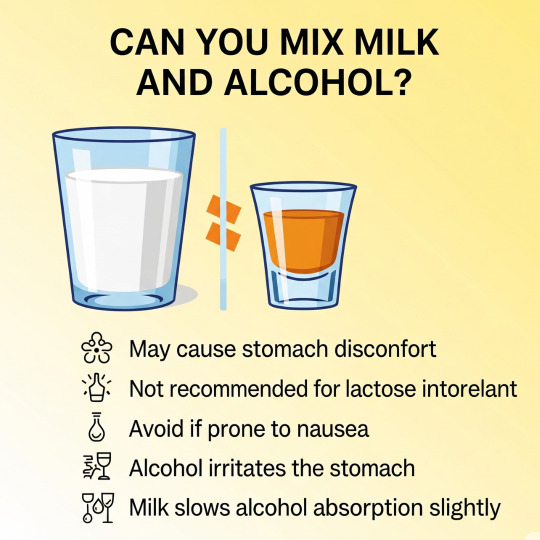
Milk and Alcohol: Why This Mix Might Be Better Than You Think
Can You Mix Milk and Alcohol?
Combining milk and alcohol might seem strange, but it’s actually common in some beverages like the White Russian or Irish Cream. However, many people question the milk and alcohol reaction, especially when it comes to health, digestion, and hangovers.
Let’s explore what happens scientifically when you combine alcohol and milk.
What Happens When You Mix Milk With Alcohol?
When alcohol is mixed with milk, no harmful chemical reaction occurs. However, alcohol is a diuretic and irritant, while milk is dense and slow to digest. This means that the milk and alcohol reaction can feel uncomfortable for some, particularly in the stomach.
Key facts:
Alcohol can cause gastric irritation, and combining it with dairy (especially full-fat milk) may increase the feeling of bloating or nausea in sensitive individuals.
The fat and protein in milk may slightly slow alcohol absorption in the stomach, but the effect is minor and not medically significant for preventing intoxication or hangovers.
Is It Bad to Drink Milk After Alcohol?
Drinking milk after alcohol is not inherently bad or dangerous. For most people, milk after alcohol can be soothing, especially if alcohol has caused stomach discomfort.
However:
If you’re lactose intolerant or have IBS, dairy products may worsen digestive symptoms after drinking.
Alcohol can impair digestion, so combining it with a heavy, creamy liquid like milk may cause nausea or discomfort in some individuals.
So, is it bad to drink milk after alcohol? Not usually—but it depends on your digestive health.
Does Drinking Milk Before Alcohol Help?
Some people believe drinking milk before alcohol helps “coat the stomach” and prevent intoxication or hangovers. There is no scientific evidence that milk prevents intoxication or liver damage.
However:
A light meal or something with fat (like milk) can slow gastric emptying, delaying alcohol absorption slightly.
This doesn’t prevent a hangover or protect your liver—it simply slows the process of alcohol reaching the bloodstream.
So yes, milk might help reduce the immediate impact of alcohol, but it doesn’t eliminate the effects.
Are Milk and Alcohol Dangerous Together?
There’s no dangerous chemical reaction between milk and alcohol. But the combination may cause discomfort, especially if you drink large quantities or have lactose sensitivity.
So when people say “milk and alcohol are bad together,” they’re usually referring to the digestive side effects—not any toxic interaction.
Should You Avoid Dairy and Alcohol Together?
Not necessarily. Many cocktails use dairy or cream successfully. But you should avoid mixing milk and alcohol if:
You have lactose intolerance or digestive disorders
You’ve had a large amount of alcohol, making digestion slower
You’re prone to nausea or acid reflux, both of which alcohol can worsen
In those cases, it’s fair to say that milk and alcohol is bad for you.
Conclusion: Is Milk and Alcohol Safe?
✅ Safe for most people in moderation ✅ Used in many cocktails ⚠️ May cause discomfort if overconsumed or if you have digestive issues
Ultimately, the decision depends on your body. There’s no danger in combining milk and alcohol occasionally, but listen to your gut—literally.
For more science-backed advice on health, digestion, and lifestyle, visit Search Your Fitness—your guide to better living.
More Blogs That You Should Read
Can You Drink Milk After Pepsi or Coke?
Top 6 Incredible Health Advantages of Apple Cider Vinegar
Is Alcohol and Milk Safe to Drink Together?
#milk#alcohol#milk and alcohol#milk after drinking beer#health & fitness#health and wellness#healthyliving#physical health#healthcare#mental health#strength
0 notes
Text
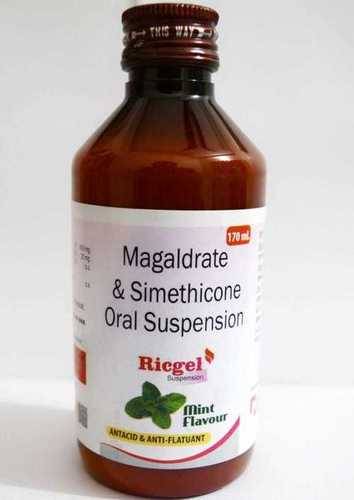
Magaldrate 400 mg + Simethicone 20 mg: Uses, Benefits, and How It Works
Magaldrate 400 mg combined with Simethicone 20 mg is a commonly used medication designed to relieve symptoms related to digestive discomfort. This combination effectively addresses indigestion, acidity, and gas, making it a preferred option for various transient stomach issues. This article explains what this medication is, how it functions, its uses, benefits, possible side effects, and important safety tips.
What Is Magaldrate 400 mg + Simethicone 20 mg?
Magaldrate is an antacid that works by neutralizing excess stomach acid.
Simethicone is an anti-foaming agent that helps reduce gas and bloating by breaking down gas bubbles in the digestive tract.
Together, they form a combination medication that treats both acid-related discomfort and gas-related symptoms.
This combination is frequently used for common digestive problems such as heartburn, indigestion, and stomach bloating.
How Does Magaldrate + Simethicone Work?
Neutralizes Stomach Acid
Magaldrate acts quickly on hydrochloric acid in the stomach, increasing the pH level and lowering acidity.
This action helps relieve symptoms like heartburn, sour stomach, and acid reflux.
Breaks Down Gas Bubbles
Simethicone works by merging small gas bubbles into larger ones that can be easily expelled through burping or flatulence.
This reduces bloating and discomfort caused by trapped gas.
Comprehensive Relief
By targeting both acid and gas, this combination provides thorough relief from common digestive issues.
Common Uses of Magaldrate 400 mg + Simethicone 20 mg
This medication is commonly used to alleviate symptoms caused by:
Acid Indigestion: Burning or discomfort caused by excess stomach acid.
Heartburn: Burning sensation in the chest caused by acid reflux.
Gastric Hyperacidity: Excess acid production leading to stomach irritation.
Bloating and Gas: Discomfort caused by trapped gas in the stomach or intestines.
Upset Stomach: General stomach discomfort, sometimes accompanied by nausea or fullness.
Benefits of Using Magaldrate + Simethicone
Fast Acting: Quickly neutralizes stomach acid and relieves gas.
Dual Action: Combines two agents to treat both acidity and gas symptoms in one medication.
User Friendly: Available in tablet or suspension form for convenient administration.
Widely Available: Commonly prescribed and accessible in many countries.
Generally Safe: Well tolerated when used according to instructions, with minimal side effects.
How to Use Magaldrate + Simethicone Safely
Follow Dosage Instructions: Take exactly as prescribed by your healthcare provider or as indicated on the packaging.
Timing: Usually taken after meals and before bedtime to control acid and gas effectively.
Form and Administration: Tablets can be swallowed or chewed depending on the form. Suspensions should be shaken well before use.
Avoid Overuse: Do not exceed the recommended dose to prevent side effects or masking of serious conditions.
Stay Hydrated: Drink a full glass of water with the medication to aid absorption and effectiveness.
Consult Your Doctor: If symptoms persist beyond two weeks or worsen, seek medical advice.
Potential Side Effects
Most users tolerate this medication well. However, some may experience mild side effects such as:
Mild diarrhea or constipation
Stomach cramps or discomfort
Allergic reactions (rare), including rash, itching, or swelling
Nausea or vomiting
If you experience severe reactions such as difficulty breathing, swelling of the face or throat, or severe abdominal pain, seek immediate medical attention.
Precautions and Warnings
Pregnancy and Breastfeeding: Consult a healthcare provider before use to ensure safety.
Existing Medical Conditions: Inform your doctor if you have kidney problems or chronic illnesses.
Drug Interactions: Notify your healthcare provider about all medications or supplements you are taking, as antacids can interfere with the absorption of certain drugs.
Short-Term Use: Intended for temporary relief; persistent symptoms require further evaluation.
Avoid Multiple Antacids: Do not use several antacid products at once unless directed by a healthcare professional.
When to See a Doctor
Seek medical attention if you experience:
Severe or persistent abdominal pain
Black or bloody stools
Unexplained weight loss
Difficulty swallowing
Symptoms lasting more than two weeks despite treatment
Signs of an allergic reaction
These signs may indicate a more serious underlying condition.
Storage Instructions
Store at room temperature between 20°C and 25°C (68°F and 77°F).
Keep in a dry place, away from direct sunlight and moisture.
Keep out of reach of children and pets.
Do not use after the expiration date.
Summary
Magaldrate 400 mg combined with Simethicone 20 mg is an effective, dual-action medication that relieves acid indigestion, heartburn, and gas discomfort. It works by neutralizing stomach acid and dispersing gas bubbles for quick and comprehensive relief. When used properly and as directed, it is safe and well tolerated. Always follow your healthcare provider’s instructions and consult them if symptoms persist or worsen. This medication offers an affordable and reliable solution for managing common digestive problems and improving comfort.
0 notes